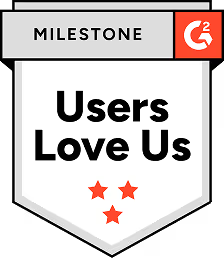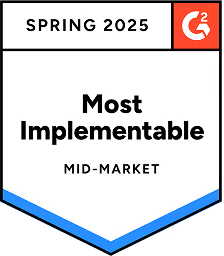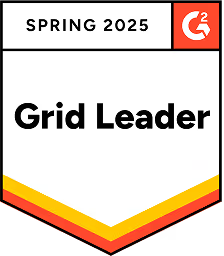Agentic AI 101: Smarter GTM for Modern Teams

TL;DR
The next big thing in B2B tech has arrived: agentic AI.
In this article, we’ll dive deep into the world of agentic AI, exploring how these advanced systems are transforming go-to-market (GTM) operations. Unlike simple AI assistants that wait for commands, agentic AI acts more like a sophisticated team member, making decisions, learning from interactions, and driving meaningful business results with minimal human intervention.
Key takeaways from the article:
- Agentic AI is more than simple automation: Traditional AI tools are like assistants, waiting for precise instructions. Agentic AI operates more like a strategic team member, perceiving business contexts, making autonomous decisions, and adapting its approach based on real-time insights.
- Supercharge team performance without adding headcount: By handling complex, time-consuming tasks, agentic AI allows your team to focus on high-value activities that demand human creativity and emotional intelligence. This means your existing team can manage larger territories, run more sophisticated campaigns, and engage more deeply with prospects.
- Deliver consistent excellence at unprecedented scale: Maintaining quality across hundreds or thousands of customer interactions has always been a challenge. Agentic AI solves this by applying best practices consistently, ensuring brand guidelines are followed, and maintaining optimal engagement patterns 24/7. The result is a level of operational excellence that grows more refined with each interaction.
- Intelligent engagement that learns and improves: Unlike rigid automation tools, agentic AI continuously learns from each interaction. It can determine the perfect timing for outreach, personalize communication strategies, and even identify the most strategic moments for human team members to step in. Each engagement makes the system smarter and more effective.
When it comes to AI, it feels like there are hundreds of new tools popping up each week. And yet, somewhere between the buzz about chatbots and the endless parade of "AI-powered" tools, something truly revolutionary has emerged: agentic AI.
Agentic AI isn't just another automation tool: it's fundamentally changing how marketing and sales teams work, think, and succeed. Current AI tools are like having a skilled assistant who needs step-by-step instructions for everything. Agentic AI, on the other hand, works more like a capable colleague who understands your goals and actively works to achieve them, learning and adapting along the way. While traditional AI tools wait for commands, agentic AI is constantly working in the background, analyzing data, spotting opportunities, and taking action to help you succeed.
In this article, we'll cut through the hype and explain exactly what agentic AI is, how it works, and how it can benefit go-to-market (GTM) teams. By the end, you should have a better understanding of how agentic AI can help you work smarter and spend more time on the parts of your job that you do best.
What is agentic AI?
At its core, agentic AI is an autonomous software system that can perceive its digital environment, make decisions, and take actions that drive toward specific goals — all with minimal human input. Unlike simpler AI tools that perform specific tasks on command, agentic AI actively works toward objectives, adapting its approach based on what it learns along the way.
How do “AI Agents” fit into this?
At the heart of agentic AI are AI Agents: autonomous software entities designed to help teams achieve specific business goals. Think of an AI Agent as a digital team member who works alongside your human staff, but specializes in handling data-intensive and repetitive tasks that computers do best.
What sets AI Agents apart from simpler automation tools is their ability to work independently toward objectives. Just as a skilled employee understands their role and takes initiative to achieve results, an AI Agent can perceive what's happening in your business environment, make decisions about what actions to take, and learn from the outcomes to improve over time.
For example, an AI Agent focused on prospect engagement might notice that certain leads are showing increased interest through website visits and content downloads. Rather than waiting for instructions, the Agent can automatically prioritize these prospects, craft personalized outreach messages, and determine the best time to involve human sales reps — all while adapting its approach based on what works best.
{{cta-1}}
Core components of agentic AI
To understand how agentic AI works, let's explore its four fundamental capabilities. Each one mirrors aspects of how your best team members work, but with the added power of processing tons of data at machine speed.
- Perception: Just as sellers can constantly “read the room” with prospects and pick up on subtle cues, agentic AI can monitor multiple data sources to understand what's happening in its environment in real-time. For GTM teams, this means it can track everything from prospect engagement patterns to market signals, building a comprehensive picture of your business environment.
- Decision-making: Armed with this understanding, agentic AI evaluates options much like an experienced strategist would. Using advanced AI techniques, it can weigh different factors, consider potential outcomes, and choose the best path forward (also known in AI as the “next-best action”). The key difference? It can process thousands of data points and scenarios in seconds, leading to more informed decisions.
- Action: What good is great strategy without execution? Once agentic AI makes a decision, it can act on it immediately and independently. Whether that means sending a perfectly-timed follow-up email, adjusting campaign parameters, or creating call tasks for human team members, it moves from thought to action seamlessly.
- Learning: Here's where agentic AI truly shines. With every interaction and every outcome, it gets smarter. Using advanced techniques like reinforcement learning, it learns what actions work best in different situations and uses that information to continuously refine its approach.
How agentic AI drives business results
Understanding agentic AI’s core components helps us see how it can create real business value. Let's explore how these fundamental capabilities combine to transform your GTM operations.
- Autonomous decision-making: Building on its perception and decision-making capabilities, agentic AI can:
- Evaluate tons of data to make strategic choices.
- Adapt strategies in real-time based on results.
- Take independent action while staying within defined parameters.
- Use its learning capability to make increasingly better decisions.
- Intelligent engagement: Combining perception, action, and learning, agentic AI:
- Determine optimal timing for outreach based on observed patterns.
- Personalize interactions using learned insights.
- Identify the right moment for human handoff.
- Continuously improve engagement strategies based on results.
- Strategic optimization: Leveraging all four components together, agentic AI can:
- Monitor performance metrics 24/7 using its perception capabilities.
- Make real-time adjustments based on learned patterns.
- Identify successful approaches through continuous analysis.
- Balance multiple objectives while protecting brand reputation.
This progression from fundamental capabilities to practical features shows how agentic AI creates real business value. Each feature builds on the core components, working together to create a system that not only automates tasks but truly enhances your team's capabilities.
{{cta-1}}
How agentic AI differs from other AI solutions
The AI landscape can be confusing, with new tools and technologies emerging almost daily. To understand what makes agentic AI special, let's compare it to other common AI solutions in the market. Think of this as a spectrum of AI capabilities, with each type offering different levels of autonomy and intelligence.
AI assistants & copilots: Helpful – but limited – tools
AI assistants and copilots are like having a talented intern who's great at specific tasks but needs constant guidance. These tools can help you write emails, analyze data, or generate content – but only when you specifically ask them to. While they're certainly useful, they're reactive rather than proactive, waiting for your instructions before taking any action. They require more human oversight than other AI solutions, and they don’t have the ability to learn as they go.
For example, an AI assistant might help you craft the perfect response to a prospect's email, but it won't decide when to send that email or determine if an email is even the best way to reach out. That strategic thinking still falls to you.
📖 READ NEXT: “AI sales assistants 101: What they are & how they can help your team”
AI SDRs: Missing the human connection
Technology should enhance human capabilities, not replace them entirely. Yet that's exactly what AI SDRs attempt to do – completely automate the sales development process by removing human reps from the equation. While this might sound appealing from a cost-savings perspective, it fundamentally misunderstands what makes sales successful: human connection.
Think about the best sales professionals you know. What makes them effective isn't just their ability to follow up consistently or send well-crafted messages – it's their talent for building genuine relationships, reading subtle social cues, and adapting their approach based on human intuition. These "right-brain" skills – empathy, creativity, and emotional intelligence – are essential for establishing the trust that ultimately helps close deals.
While AI SDRs can automate basic outreach and follow fixed sequences, they lack these crucial human capabilities. They can't genuinely connect with prospects, understand the nuances of a conversation, or build the kind of meaningful relationships that turn prospects into long-term customers. Moreover, their rigid, rules-based approach often leads to interactions that feel mechanical rather than meaningful.
📖 READ NEXT: “What are AI SDRs? Unpacking their benefits, limitations & smarter alternatives”
Agentic AI: The strategic partner
This is where agentic AI truly stands apart. Rather than just executing tasks or following scripts, agentic AI operates as a strategic partner for your team that can:
- Make autonomous decisions about when, how, and where to engage prospects;
- Adapt its approach based on real-time feedback and results;
- Learn from every interaction to improve future performance; and,
- Balance multiple objectives while protecting your brand reputation.
The key difference lies in what we call "holistic decision-making." Instead of handling tasks in isolation, agentic AI considers the full context of your GTM strategy. It's like having a seasoned professional who understands not just what to do, but why and when to do it.
A word of caution about "agent washing"
As agentic AI gains popularity, we're seeing a concerning trend in the market: "agent washing." This happens when companies rebrand their existing AI tools — typically basic automation platforms, copilots, or AI assistants — as "AI Agents" without offering true agentic capabilities. It's similar to when products claim to be "natural" without meeting any real standards.
Why does this matter? Because when you invest in what you believe is an AI Agent but actually receive a repackaged automation tool or AI assistant, you miss out on the transformative benefits of true agentic AI. Instead of getting a system that can make autonomous decisions, learn from interactions, and adapt in real-time, you end up with something that still requires constant human oversight and manual adjustments. This not only affects your team's efficiency but can also impact your bottom line: you're paying a premium for advanced capabilities you aren’t actually getting.
To spot genuine agentic AI, look for systems that demonstrate true autonomous decision-making, continuous learning, integration of multiple data sources, and clear reward functions that guide behavior. When evaluating solutions, ask specific questions about how the system makes decisions and operates independently – a true AI Agent should work autonomously toward your goals, not just follow preset rules or wait for commands.
📖 READ NEXT: “AI sales agents vs. “agent washing”: What to watch for when buying an AI solution”
Key benefits of agentic AI
The true value of agentic AI lies in how it transforms GTM operations, not just by automating tasks, but by fundamentally improving how teams work and results are achieved. Understanding these benefits helps explain why agentic AI represents such a significant advancement over traditional automation and simpler AI tools. Let's explore the four key areas where agentic AI creates the most impact for GTM teams.
Benefit #1: Enhanced team performance
When agentic AI handles time-consuming background tasks, your teams can dedicate themselves to work that truly matters. Sales reps invest more energy in building meaningful relationships. Marketers develop more creative, impactful campaigns. Operations teams focus on strategic process improvements rather than routine maintenance.
This shift in focus creates a powerful multiplier effect: as the AI handles routine tasks with increasing sophistication, your teams become free to apply their uniquely human skills — creativity, emotional intelligence, and strategic thinking — to drive business growth
Benefit #2: Consistent excellence
One of the most significant challenges in scaling GTM efforts is maintaining consistency across thousands of interactions. Agentic AI excels at:
- Following best practices across every prospect interaction
- Maintaining optimal engagement patterns 24/7
- Executing complex nurture sequences flawlessly
- Ensuring brand guidelines are consistently applied
This reliability creates a foundation of excellence that grows stronger over time.
{{cta-1}}
Benefit #3: Expanded team capacity without adding headcount
One of the biggest challenges organizations face is scaling their operations without having to continuously add new team members. Agentic AI solves this by dramatically increasing what your existing team can accomplish. Think of it as giving each team member a sophisticated partner who handles time-consuming background work, enabling your people to manage larger territories, more accounts, or more complex campaigns without becoming overwhelmed.
This multiplication of capacity means teams can take on significantly more work while maintaining high quality standards. A marketing team that could previously manage five campaigns might now handle fifteen, while a sales team could effectively cover twice their usual territory - all without adding new headcount or burning out existing team members.
Benefit #3: Achieving reach & relevance at the same time — at scale
Traditional approaches to personalization force a choice between quantity and quality. Agentic AI eliminates this trade-off by combining deep prospect insights with sophisticated engagement capabilities. Your outreach can grow exponentially while becoming more relevant for each prospect, not less.
Benefit #4: Continuous improvement
Every interaction enriches your agentic AI's understanding and capabilities. This creates a virtuous cycle where:
- Prospect engagement patterns inform future strategies
- Successful approaches are automatically amplified
- Less effective tactics are refined or retired
- Market changes are detected and addressed in real-time
The result is a system that doesn't just maintain performance: it gets progressively better at achieving your GTM objectives.
Final thoughts
Agentic AI represents a fundamental shift in how we think about technology's role in GTM motions. Rather than simply automating tasks or waiting for commands, these sophisticated AI Agents work as true strategic partners, continuously learning and adapting to help teams achieve better results.
What makes this technology particularly exciting is how it enhances rather than replaces human capabilities. By handling data-intensive tasks and managing routine interactions, agentic AI frees your teams to focus on what humans do best: building relationships, developing creative strategies, and solving complex challenges that require emotional intelligence.
Want to learn more about agentic AI?
Want to dig deeper into any of the topics we’ve mentioned in this article? Great news: we have a whole content series dedicated to helping your entire GTM team understand the transformative power of agentic. Make sure to check out the rest of the articles in this series:
Want to hear how real GTM teams are using (and benefitting from) AI Agents?
Check out our customer case studies.
You + Regie.ai AI Agents = the perfect prospecting solution.
Book a demo today to see what our Agents can do for you.
FAQs
Read more posts
View all BlogsNeed more help?
If you still have questions, make sure to check out our Help Center: there, you'll find all the tips & advice you'll need to get your team up & running with Regie.ai.









